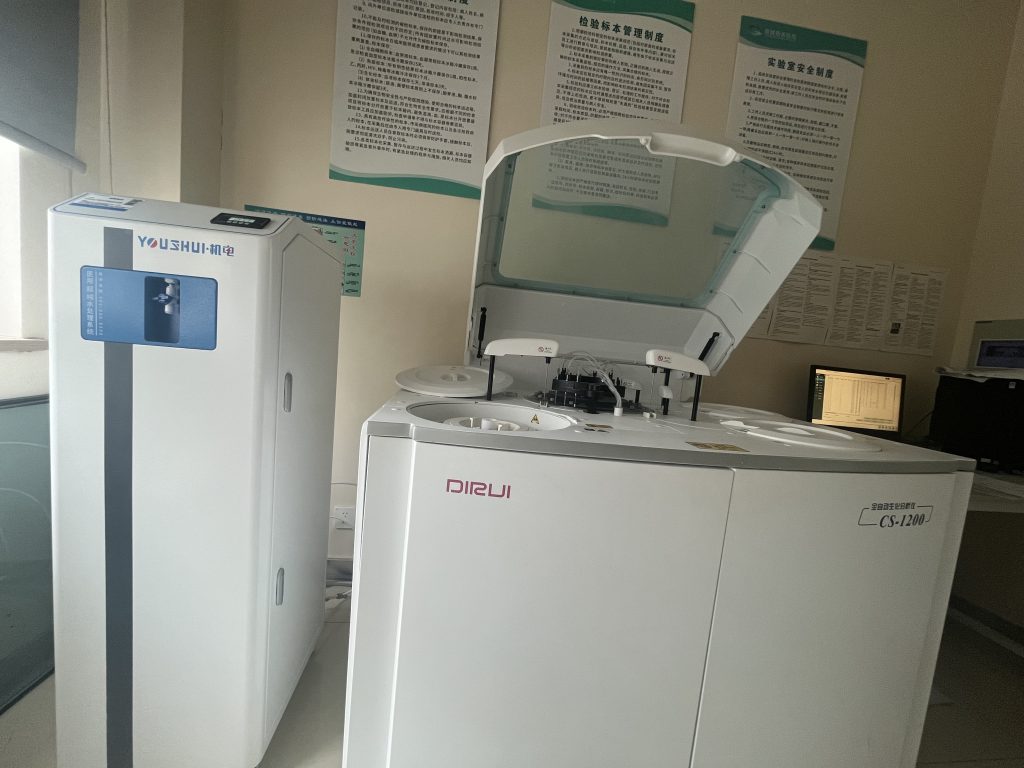Ultrapure Water vs. Purified Water: Is It Safe to Drink?
Release time: 2025-06-19
Water is an indispensable resource in daily life. We are constantly in contact with water, and as water pollution becomes more serious, people are increasingly concerned about water purity. Regarding water purity, we commonly have two types: ultra-pure water and purified water. So, is ultra-pure water safe to drink? Hefei Youshui introduces the differences between ultra-pure water and purified water.
What is Ultra-Pure Water?
Ultra-pure water is water that has been treated to an extremely high degree, with virtually no impurities. It has an exceptionally high purity, with all dissolved substances, ions, bacteria, viruses, and other harmful materials removed. Ultra-pure water is processed using various high-efficiency technologies, including:
- Reverse Osmosis: Uses a semi-permeable membrane to remove most dissolved substances and particles.
- Ion Exchange: Removes minerals and ions from the water.
- UV Disinfection: Kills bacteria and viruses in the water.
- Activated Carbon Filtration: Removes organic substances and odors.
This treatment makes the conductivity of ultra-pure water extremely low, approaching the ultimate level of water purity. Such water quality is required in high-end scientific experiments, precision manufacturing, medical sterile operations, and other scenarios where water purity is critically important. It is not designed for everyday drinking.
-768x1024.jpg)
-768x1024.jpg)
Hefei Youshui Ultra-Pure Water Equipment – Providing Safe Ultra-Pure Water for Sterile Environments
Hefei Youshui specializes in providing professional ultra-pure water production equipment for industries such as medical care and scientific research. Its core technology and design focus on ultra-pure water systems, particularly in terms of the efficiency and stability of ultra-pure water filtration equipment, ensuring compliance with strict water quality requirements for sterile operations.
Core Applications:
- Medical Industry: Final rinsing water for instrument cleaning and disinfection supply centers, endoscope cleaning water, dental treatment water, laboratory diagnostic reagent preparation water, and biochemistry analyzer water.
- Laboratories: Life sciences, analytical chemistry, material science, and other laboratories requiring extremely high water quality.
- Sterile Environment Requirements: All designs aim to meet the water quality standards outlined in related sterile operation protocols, focusing on controlling microbial and endotoxin levels.

What is Purified Water?
Purified water is water that has undergone simple filtration, distillation, or reverse osmosis processes to remove most impurities and pollutants. It meets the national or regional standards for drinking water quality . It is the main type of water found in bottled water in supermarkets or produced by household water purifiers. Purified water has a high level of purity, but compared to ultra-pure water, it may still contain trace amounts of minerals and elements. Therefore, purified water is suitable for daily drinking, but it is not appropriate for situations that require highly precise water quality.
Comparison of Ultra-Pure Water and Purified Water:
| Feature | Ultra-Pure Water | Purified Water |
| Purity | Extremely high, almost no dissolved substances or impurities | High, contains trace minerals and impurities |
| Impurity Removal Methods | Reverse osmosis, ion exchange, UV, etc. | Filtration, distillation, reverse osmosis, etc. |
| Application Fields | Medical, laboratories, semiconductors, precision instruments | Household drinking, daily cleaning |
| Drinking Safety | Safe to drink, but not suitable for long-term consumption, lacks minerals | Safe to drink |
Is Ultra-Pure Water Safe to Drink?
Although ultra-pure water is technically safe, it is not recommended as a daily drinking water source due to the complete removal of minerals from the water. The human body requires certain minerals from water, such as calcium and magnesium, and ultra-pure water lacks these minerals. Long-term consumption of ultra-pure water may lead to the depletion of minerals in the body. Additionally, the molecular structure of ultra-pure water is different from that of natural water, which may affect the body’s absorption of water.
In comparison, purified water, while also filtered, has a slightly lower purity and retains a small amount of minerals. Purified water is suitable for short-term consumption but is not recommended as the sole source of drinking water over the long term. Natural mineral water or properly treated tap water is a better choice, as they can provide the minerals the body needs.

.jpg)
LH_WH_600x800px-1.webp)